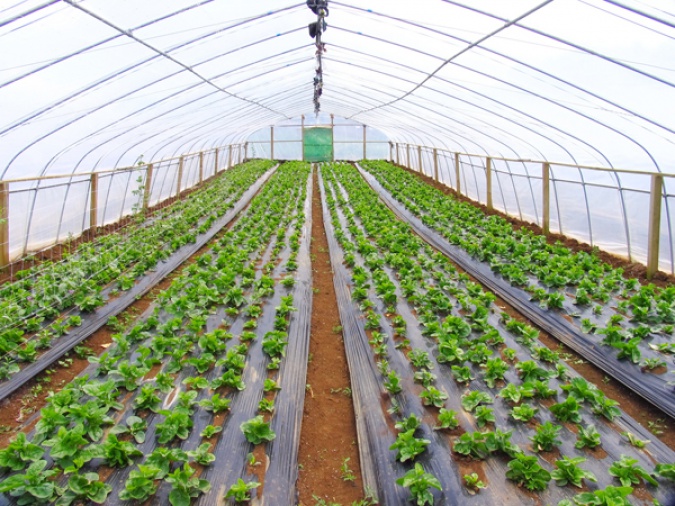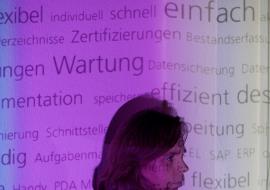BASF invests annually over €300 million in research in agricultural products alone. But developing new, innovative products is not just cost intensive, but time-intensive, too. BASF counts on a development period of up to 10 years for a marketable product, without having a guaranteed return on investment from its research.
It’s therefore easy to understand why quality management has a high priority for research at BASF. Another team of leading scientists, the latest technologies and analysis techniques such as computer-controlled molecular modelling, genetic profile creation and mass spectrometry as well as continuous checking and improvement of research processes ensure that BASF today has the most modern product portfolio in plant protection research.
Many processes, in particular monitoring and documenting field tests, can only be slightly automated. Bonitation – or the assessment and recording – of the effects of test substances on plants and pests can only be carried out by specialist personnel. This bonitation process is often carried out on large stocks of plants in greenhouses or on test areas in open beds. In addition to carefully visually inspecting and measuring the plants, the tester must systematically classify results and meticulously record them immediately. In extreme cases, if the test results are incorrectly recorded, the research project can fail.
BASF SE in Limburgerhof has therefore been looking for a long time for opportunities to improve the bonitation data recording process, and increase quality assurance.
During the traditional bonitation process, the plant characteristics for the relevant test are examined and evaluated by experienced personnel. Then, the test characteristic is documented for each plant as hand-written notes in bonitation lists or by entering the data into computer lists. The bonitation process in greenhouses or on open beds requires a lot of time and staff because of the need to constantly switch between assessing and recording, and because of the need to document the results. Because of the constant need to switch between tasks and the risk of transmission errors when working in teams, data errors may also be made.

This is where the Troisdorf software company dawin was able to come to rescue of the Ludwigshafen-based chemical company. dawin gmbh has become specialised in developing mobile applications and speech-assisted software solutions. For this young software company, too, customer-oriented, innovative solutions are the key to success. The key to success for the bonitation process lay in speech-assisted recording of test results. Thanks to speech-assisted bonitation, the personnel can concentrate on their core job – professional assessment of the test results for each individual test plant. The results are recorded simultaneously in a database using voice recognition.
The speech experts at dawin added speech-control to the tried and tested Excel form used by this chemical giant. Now, the bonitation results, for example, the level of pest infestation or symptoms can be entered into the database using speech. Speech-assisted bonitation also enables the user to navigate through the current test form. If so desired, additional acoustic information can be integrated into the system. This means that the operator receives information or confirmations on the values that are input, and can automate any multiple inputs required using simple speech commands.
After a short time to get used to the system, bonitation can be carried out without switching to the data input mode via the keyboard and without constantly having to look at the computer monitor. This means that the person can concentrate fully on professionally assessing the test object, and at the same time, the bonitation results are accurately documented.




